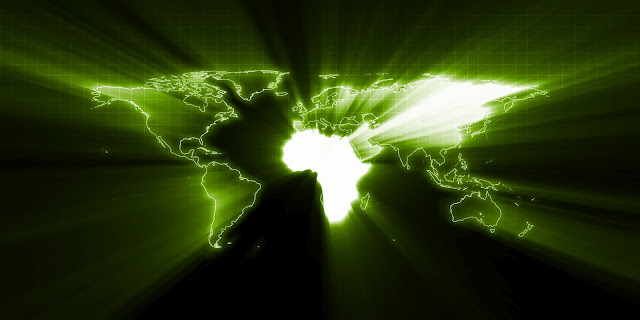Gospel proclamation will be foundational to any spiritually thriving group of worshippers. I am a firm believer of this. And while I would never force one particular method upon someone, I am a strong proponent of going from Creation to Christ. What a beautiful picture we have from the Father of creation, fall, redemption, and restoration, the perfect end to His perfect plan. This is a major goal of mine: to be able to present this story in Arabic. I want so badly for people to see the big picture of God's goodness, faithfulness, and eternal plan culminating in both, not either/or, mercy and justice.
So when I write that my greatest experience, to date, in North Africa was not built on the Creation to Cross story it might come as a surprise. At the very least, it shocked me like that electric fence I was in too much of a hurry to notice (true story). In lieu of using my usual story, I inadvertently stumbled into what I never considered an option: the Nietzsche to Christ model.
On a normal day, in a normal restaurant, under normal circumstances I sat waiting for my lunch. After sharing the usual small talk and joking around with friends, I had settled in at my small table on the second floor. And as was my custom, I began to read. And what book was I reading when my friend reappeared? None other than Nietzsche's Genealogy of Morality.
Now why is it that I still expect God to do the expected? For some reason I simply refuse to believe that God does big things without consulting me first. Here I am always wanting him to stay true to my plans and provisions when His have been made long before. I smugly wait for him to use all my confounding theological and philosophical arguments, thinking for some reason that they've never been thrown down in an argument before. I suppose, at the very least, I expect him to give me a heads up before he does something that rocks my whole world.
But, of course, God waited for His moment. And His moment wasn't as I read Tolstoy with his winsome development and portrayal of the human character marked by its sundry deficiencies. It wasn't while I read Dostoevsky's Brothers Karamazov with its vast and deep panorama of redemption. Nor in the midst of Newbigin's treatise on applying the gospel to postmodernism did God open the door. He waited for Nietzsche, the guy who claimed He was dead! The anti-God, anti-Christianity, anti-metaphysical, even, philosopher who inadvertently contributed to the rise of Nazism.
"Hey! You're food's ready. What is that you're reading?" He approached me, surprisingly curious.
"Oh, its just a book on philosophy," I said indicating the book he now held in his hands investigating, "I was just doing some studying."
"What does this man say?" he asked.
Attempting to dismiss the conversation, I briefly explained some of Nietzsche's major points on how to evaluate and assign meaning to morality. "He is just talking a lot about how we can decide what is good and bad," I concluded, hoping to move away from the technical language that philosophy would inevitably entail.
And then he asked the question that marked the conversational turning point: "Don't you know what is good and bad?"
Still not fully realizing the opportunity presented to me, I quickly scanned the room. Finding that my friend and I were alone, I answered hesitantly, "Well, I know what God says is right and wrong through the Kitab M'qudus (Holy Book), but its good to read those who don't believe like me so I can understand how the world thinks. But I believe and trust the Kitab M'qudus. And you have the Qu'ran to tell this as well, right?" I watched him hoping for further interest, but expecting yet another verbal lashing about how there is no one but Muhammad and the Bible is ridiculous and changed and wrong and full of lies, etc, etc, etc.
"The Kitab M'qudus?," he answered slowly, then more directly, "Well there is the Qu'ran, but I have the New Testament."
My eyes did the talking for me, "WHAT!?" Any remnant of passivity and nonchalance dripped from my face as I turned pale. As though I had drifted off, I attempted to refix my gaze and restore my mouth from its gaping state. Any attempt to suppress this immense upheaval of emotion was met with miserable failure. Awkwardly, I turned my wide, beaming eyes to the floor, diminished an aggressive grin to a sort of half-smirk, and brought my voice down a pitch or two, "Did you say New Testament???"
He could barely contain his own smile at my total lack of inhibition, but resting his index finger on his pursed lips gave me a long ssssshhhhhhh. In a whisper, I reiterated, "Wait, did you just say New Testament?," fully expecting him at any moment to burst out laughing and start off on another joke.
But this would not be the case, his solemn confirmation was cold, clean water bringing refreshment to my long, arduous journey through the desert, "Yes, my wife and I both read and study the New Testament."
"BROTHER!," I whisper-yelled as my face erupted with all the emotion I was working so hard to maintain. My face showed everything from the mile-long smile of joy all the way across the spectrum to tear-filled eyes that couldn't explain to me from which emotional well they had sprung. I was totally perplexed with a wave of various and conflicting emotions.
With a deep, humble smile, he responded with a genuine, but emphatic "Yes."

1 comment:
this is beautiful :)
Post a Comment